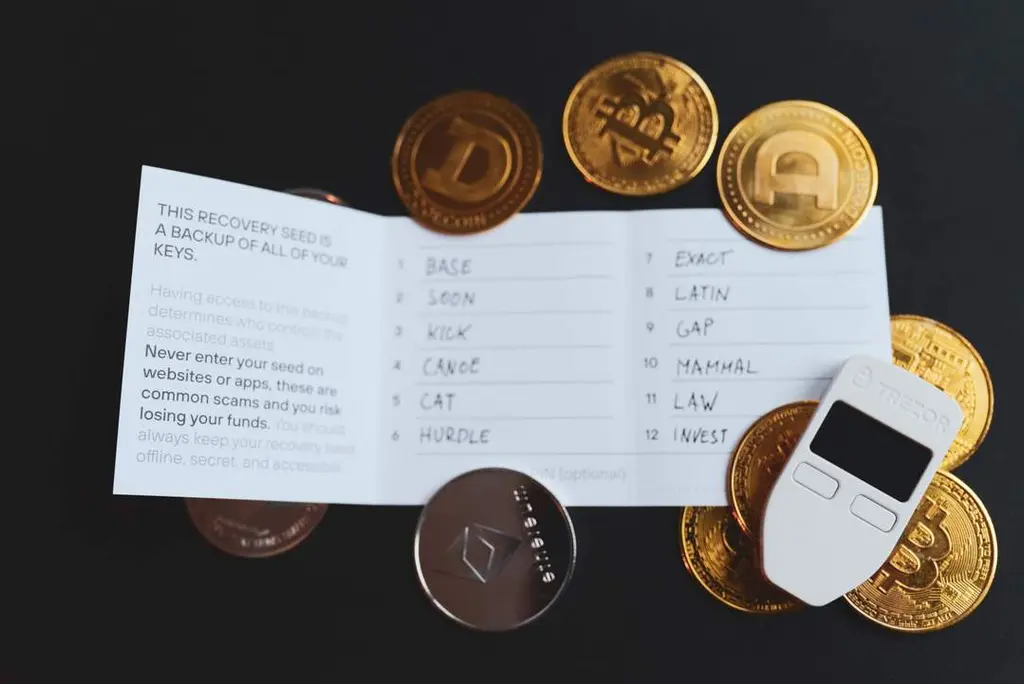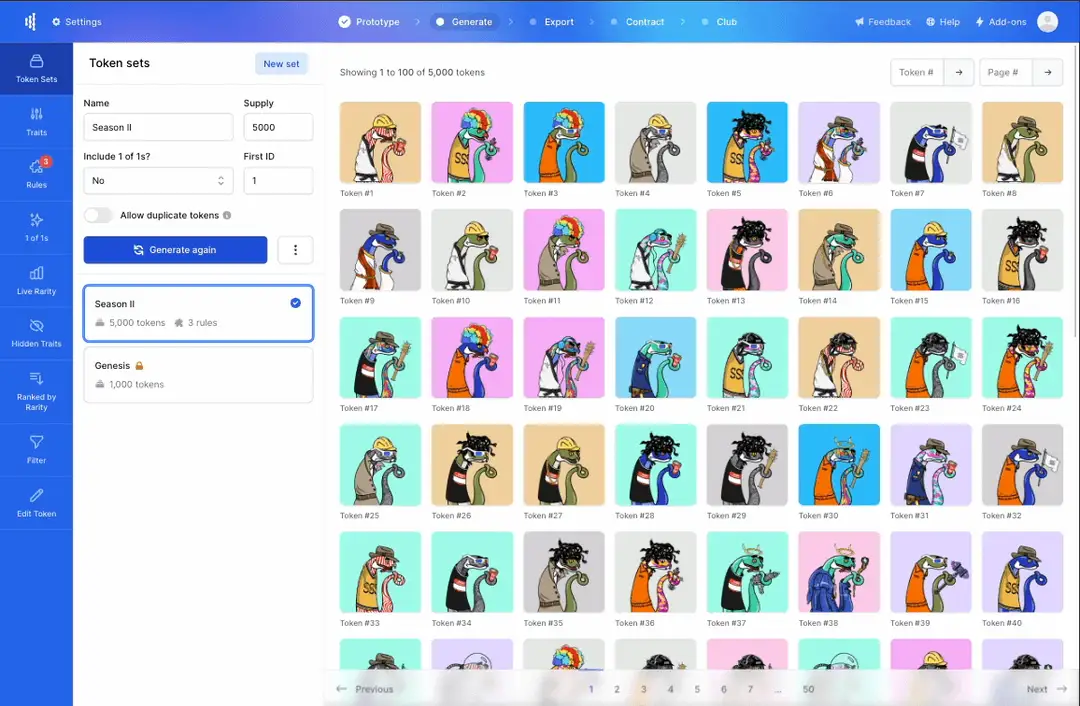
Unfortunately in most industries there will be a small group of people with bad intentions who try to take advantage of people, and the NFT space is no exception. However, many in the community regularly post about how to spot scams to help each other out. If you are new to the space it is even more crucial that you are aware of the signs to look out for. We have summarized a few tips you can follow to have a better experience in the NFT space.
Being able to spot red flags along with following proper security measures will keep you safe from scams. Never rush a decision or trust any account straight away, it will never hurt to double check the legitimacy of an account that DMs you, a website or the URL of a link. There is also the issue of rugpulls where a project may seem like a good investment on the surface but after mint the team disappears and collectors are left with empty investments. Do not worry though, there are many precautions you can take to avoid situations like this.
Rugpulls
After several unfortunate incidents in the NFT space concerning projects that ditch their community after the mint, the NFT community have recognised patterns and red flags that always show up in these cases. If you notice any of these signs it would be wise to hold off on investing, even if you miss a low entry price it is better to know for sure that a project's team is legit and has a future rather than FOMO-ing in and losing money.
- If a large account or influencer with a high following is either promoting a project or is the founder of one, this does not guarantee that it will be a success. Do not use this as the main measure of how legit a project is or how successful it will be.
- If the team behind a project is not doxxed (anonymous identities) it can be a bit tricky. The advice we recommend is to look for evidence of their previous work that legitimizes them. While some teams do prefer to keep their identities anonymous for a while, they will often provide proof of previous projects, jobs and work they have done that shows they are experienced and capable in their field. There are projects out there that will have un-doxxed teams that have done well, so study how they present themselves to their project to get an indicator of whether someone is trustworthy. But always remember to trust your gut as well.
- Never ever FOMO into a project just because of hype and buzz around it. This happens very often in the NFT space as collectors can get excited over a new project but that doesn't guarantee anything. Hype can be built through marketing so make sure there are several factors of a project that you genuinely believe in.
- Any project promising quick returns or ‘once-in-a-lifetime’ opportunities should not deter you from investigating the project and doing your research on them.
- If a project has a team that is distant or has inconsistent communication, this is a red flag. If they are hard to reach now, they could be even harder to speak to if you run into any issues or have questions.
- Is there a community behind a project? Are they made up of legit unique users or bots?
- Assess the quality of their roadmap. How unique is it? Is it clear or vague? Have they already checked off some of their goals? How beneficial is it for holders? Does the utility behind the project add value to your life?
- How many NFTs are available? Have they shown any sneak peeks of the artwork? What is the quality of the artwork?
There are many accounts on Twitter that share good advice on scams, but you should always do your own research. Some of the accounts our team follow are:
- @EdgeofNFT
- @nfttimes
- @farokh
- @beaniemaxi
Common NFT scams
Now that we have covered signs of a rugpull, we can dive into some common scams from random fraudsters you may come across on Twitter either in your DMs or in your comments.
Knock-off websites
Scammers will often create fake versions of legitimate and trusted NFT websites such as OpenSea or a successful project like the Bored Ape Yacht Club. They will look very similar to the real websites but there are red flags you can check.
Firstly, check the URL. Fake websites will misspell a word by a letter, that you may not notice at first but to double check, open another tab and type the website into google and compare the URL to the site that you don't trust.
Secondly, if you find an offer or prices that seem too good to be true, they most likely are. If you find yourself on OpenSea or Rarible looking at an NFT from a popular collection and it's a fraction of the price, again open up another tab and manually search up the website. Look for the NFT there. If you don't find that deal it's because it doesn't exist.
Next, a fake website will automatically ask you to connect your wallet as soon as the page opens. It may alert you to a “problem” that requires you to connect your wallet to fix it. This never happens, when you go onto any legit marketplace or website it will never ask you to connect your wallet until you click it manually if you are minting an NFT. There aren't any issues or alerts that can happen that require you to connect your wallet or type in any sensitive information like your seed phrase or password.
Fake social media accounts
Fake accounts imitating verified accounts or trustworthy influencers happen pretty often, they may even pretend to be a Moderator or customer support for a creator. You may receive a DM from an account asking you for money or offering you a deal on an NFT followed by a link. Again, the way to verify this is to open another tab and find the account and open it up. Compare the username tag and you’ll probably spot a few extra letters or symbols that you didn't notice at first. If you have been sent a link by this fake DM, then on the other tab where you’ve searched for the original account, look through their official links to see if they do indeed have any sales or offers anywhere. If you are still in doubt you can even go ahead and tweet the original creator letting them know about the DM you received (with a screenshot) and ask them to verify whether this is true. Most of the time if a creator is notified about an issue like this, you will get a response.
Fake giveaways
Similar to the point above, you may receive a DM on Twitter or Discord with a message regarding a giveaway or a prize that you've been selected to win, followed by a link. If you are unsure about a random message like this, then search it up on Google, check the project the message associated itself with to see if they are running any giveaways and go straight to the original accounts links or Discord. Compare the information in the DM and the URL with your Google search and you’ll probably find minor differences that are a give away of a scam (see what I did there).
Recap
The red flags are in the details, scammers rely on the fact that someone will not analyze minor differences in website URLs or social media accounts. They rely on investors being lazy or FOMO-ing on a deal that excites them. If you know how legit projects and accounts conduct themselves then you’ll know when a DM or comment is fake. It is possible to receive DMs from real accounts and projects that want to partner up but they will not send you links straight away and will always engage in a proper conversation with you.
Always look for credibility of the account or project contacting you, when in doubt always make comparisons and you will find inconsistencies, and never click on links straight away. You will always be better off searching up a website yourself. Also do not hesitate to tweet or contact a project or account about a message you have received, most people in the NFT space do not want to be associated with scams and more often than not you will get a response from them.
Stay safe
Over the last couple of years the NFT space has become very aware of the signs of a scam and many accounts do their part in sharing tips on what to look out for. The important thing is to never rush into anything as you will never regret double checking the details of anything that comes your way.
Feeling inspired?Launch your NFT today.
Prototype, generate and launch your collection with the most powerful no-code NFT toolkit.
Sign up for free